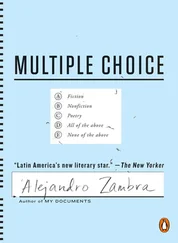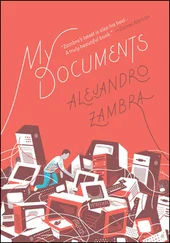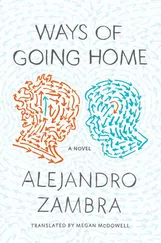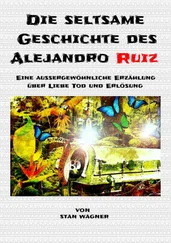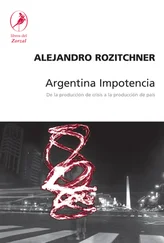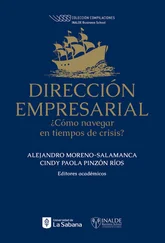That same night Emilia lied to Julio for the first time, and the lie was, also, that she had read Marcel Proust. At first she only went so far as to agree: I also read Proust. But after that there was a long period of silence, which was not so much an uncomfortable silence as an expectant one, such that Emilia had to complete the story: It was last year, recently, it took me five months, I was so busy, you know how it is, with the courseload at the university. But I undertook to read the seven volumes and the truth is that those were the most important months of my life as a reader.
She used that phrase: my life as a reader, she said that those had been, without a doubt, the most important months of her life as a reader.
In the story of Emilia and Julio, in any case, there are more omissions than lies, and fewer omissions than truths, truths of the kind that are called absolute and that tend to be uncomfortable. Over time, of which there was not much but enough, they confided their least public desires and aspirations with each other, their disproportionate feelings, their brief and exaggerated lives. Julio confided in Emilia about matters that only Julio’s psychologist should have known about, and Emilia, in her turn, turned Julio into a kind of retroactive accomplice for each decision she had taken in the course of her life. That time, for example, when she decided that she hated her mother, at fourteen: Julio listened attentively and opined that yes, that Emilia, at fourteen, had made a good decision, that there had been no other possible option, that he would have done the same, and, without doubt, if back then, at fourteen, they had been together, he certainly would have supported her.
The relationship between Emilia and Julio was riddled with truths, with intimate revelations that rapidly established a complicity that they wanted to understand as definitive. This, then, is a light story that turns heavy. This is the story of two students who are enthusiasts of truth, of scattering sentences that seem true, of smoking eternal cigarettes, and of closing themselves into the intense complacency of those who think they are better, purer than others, than that immense and contemptible group known as the others .
They quickly learned to read the same things, to think similarly, and to conceal their differences. Very soon they formed a conceited intimacy. At least during that time, Julio and Emilia managed to merge into a single kind of mass. They were, in short, happy. There is no doubt about that.
From then on, they kept follando , shagging in borrowed houses and in motels with sheets that smelled of pisco sour. They shagged for a year and this year seemed brief to them, although it was extremely long, and after that Emilia went to live with Anita, her childhood friend.
Anita didn’t like Julio, as she considered him spoiled and depressive, but nevertheless she had to allow him in at breakfast time and even, once, perhaps to demonstrate to herself and her friend that at the core Julio did not displease her, she made him boiled eggs, which were the favorite breakfast of Julio’s, that permanent guest of the narrow and rather inhospitable apartment that Emilia and Anita shared. What bothered Anita about Julio was that he had changed her friend.
You changed my friend. She wasn’t like that.
And have you always been like that?
Like what?
Like that, the way you are.
Emilia intervened, conciliatory and understanding. What’s the purpose of being with someone if they don’t change your life? She said that, and Julio was present when she said it: that life only had purpose if you found someone who changed it, who destroyed your life. It seemed a dubious theory to Anita, but she didn’t argue. She knew that when Emilia spoke in that tone it was absurd to contradict her.
Julio and Emilia’s peculiarities weren’t only sexual (they did have them), nor emotional (these abounded), but also, so to speak, literary. On a particularly joyful night, Julio read, in a joking tone, a Rubén Darío poem that Emilia dramatized and turned banal until it became a genuinely sexual poem, a poem of explicit sex, with screams, with orgasms included. It became a habit, this reading aloud — in a low voice — every night, before shagging. They read Marcel Schwob’s Monelle’s Book , and Yukio Mishima’s The Temple of the Golden Pavilion , which turned out to be reasonable sources of erotic inspiration. However, very soon the readings diversified significantly: they read Perec’s A Man Asleep and Things , various stories by Onetti and Raymond Carver, poems by Ted Hughes, by Tomas Tranströmer, by Armando Uribe and by Kurt Folch. They even read fragments of Nietzsche and Émile Cioran.
One fine or dark day, chance led them to the pages of the Anthology of Fantastic Literature by Borges, Bioy Casares, and Silvina Ocampo. After imagining vaults or houses without doors, after taking inventory of the traces of unnameable ghosts, they arrived at “Tantalia,” a short story by Macedonio Fernández that affected them profoundly.
“Tantalia” is the story of a couple that decides to buy a small plant and keep it as a symbol of the love that unites them. They realize too late that if the plant dies, the love that unites them will die with it. And as the love that unites them is immense and they are not willing to sacrifice it for any reason, they decide to lose the little plant in a multitude of identical little plants. Later comes the despair, the misfortune of knowing they will never be able to find it.
She and he, Macedonio’s characters, had and lost a little plant of love. Emilia and Julio — who are not exactly characters, though maybe it’s convenient to think of them as characters — have been reading before shagging for months, it is very pleasant, they think, and sometimes they think it at the same time: it is very pleasant, it is beautiful to read and talk about the reading just before tangling legs. It’s like doing exercise.
It isn’t always easy to find, in the texts, some impetus, however small, to shag, but in the end they manage to locate a paragraph or verse that, when whimsically stretched or perverted, works for them, gets them hot. (They liked that expression, to get hot, that’s why I use it. They liked it almost enough to get hot from it.)
But this time it was different:
I don’t like Macedonio Fernández anymore, Emilia said, shaping her sentences with inexplicable timidity, as she caressed Julio’s chin and mouth.
And Julio: Me neither. I enjoyed it, I liked him a lot, but not anymore. Not Macedonio.
They had read Macedonio’s story in a very low voice and talked on in a very low voice:
It’s absurd, like a dream.
Because it is a dream.
It’s stupid.
I don’t understand.
Nothing, just that it’s absurd.
That should have been the last time Emilia and Julio shagged. But they kept going, despite Anita’s ongoing complaints and the unusual disturbance Macedonio’s story had caused them. Perhaps to burnish their disappointment, or simply to change the subject, they turned exclusively to classics. They argued, as all dilettantes the world over have at some time argued, over the first chapters of Madame Bovary . They classified their friends and acquaintances as to whether they were like Charles or Emma, and they also argued over whether they themselves were comparable to the tragic Bovary family. In bed there was no problem, as they both made great efforts to seem like Emma, to be like Emma, follar like Emma, as doubtlessly, they believed, Emma shagged exceptionally well, and would have shagged even better in current conditions; in Santiago de Chile, at the end of the twentieth century, Emma would have shagged even better than in the book. The bedroom, on those nights, turned into a shielded carriage that steered itself, feeling its way through a beautiful and unreal city. The others, the people, jealously murmured details of the scandalous and fascinating romance that was taking place behind closed doors.
Читать дальше

